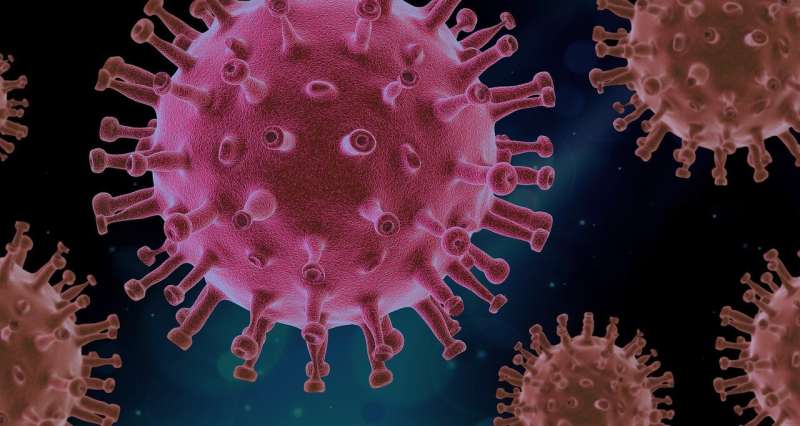This article has been reviewed according to Science X's editorial process and policies. Editors have highlighted the following attributes while ensuring the content's credibility:
fact-checked
reputable news agency
proofread
Summer COVID surge isn't cause for alarm, experts say

President Joe Biden and Health and Human Services Secretary Xavier Becerra this week became prime examples of the nation's newest COVID-19 wave, and although it's unclear what variant they're infected with, infectious disease experts say the latest dominant strains of COVID-19 are no more dangerous than previous iterations.
Biden, 81, is currently dealing with mild upper respiratory symptoms and is taking the COVID-19 antiviral Paxlovid, according to White House physician Kevin O'Connor. This is the third time Biden has had COVID-19 while in the White House.
Becerra, 66, meanwhile, announced his positive test through a spokesperson on July 16. Both continue to work, albeit remotely.
The new omicron variant, KP.3, has taken hold in recent weeks as heat waves across the United States have caused Americans to congregate indoors, according to Amesh Adalja, an infectious disease doctor at Johns Hopkins University. But this increase in infections has not translated into an increase in COVID-19-related hospitalizations or deaths, as the latest strain of the virus is no more virulent than previous iterations.
The KP.3 and KP.2 variants, both sublineages of omicron, make up a total of 61.3% of new cases in the two-week period ending July 6, according to the most recent data from the Centers for Disease Control and Prevention. The KP.3 variant consists of 36.9% of cases, and KP. 2 consists of 24.4% of cases.
The number of COVID-19 cases resulting from the KP.3 variant is rising rapidly and has quickly overtaken KP.2 and JN.1 variants as the most dominant COVID-19 lineages in recent months. In mid-April, KP.3 made up 2% of all cases.
In the past two weeks, COVID-19 test positivity has increased by 8.6% and emergency room visits have increased by 23.5% in the last week, according to the CDC. But despite this increase in sickness, deaths have only increased by less than 1%.
Not much makes KP.3 different from past iterations of the virus.
"We are still in the omicron era," said Paul Offit, who is the director of the Vaccine Education Center at Children's Hospital of Pennsylvania and a member of the Food and Drug Administration's vaccine advisory committee.
The COVID-19 virus and its variants will continue to evolve in terms of the receptor-binding domain, which is the part of the spike protein that binds to cells, Offit said. But it's still the same base virus. So for that reason, people who have been previously infected with COVID-19 or vaccinated in the past four to six months will likely only have a very mild case of the virus.
For those who experience more severe symptoms, physicians have more tools to deal with COVID-19 now, such as antivirals and monoclonal antibodies. But high-risk individuals should still continue to take more precautions than your average American, experts say.
"This is all a very different scenario than when Trump got COVID and we didn't have any of these tools," Adalja said. "Although when an 81-year-old tests positive for COVID, we still have to take it very seriously."
2024 CQ-Roll Call, Inc., All Rights Reserved. Distributed by Tribune Content Agency, LLC.



















